"So that people with hearing impairments can take on the challenges they want to achieve and realize their dreams, whenever and wherever they want."
Ayane Kabeya, 4th year student, School of Advanced Science and Engineering
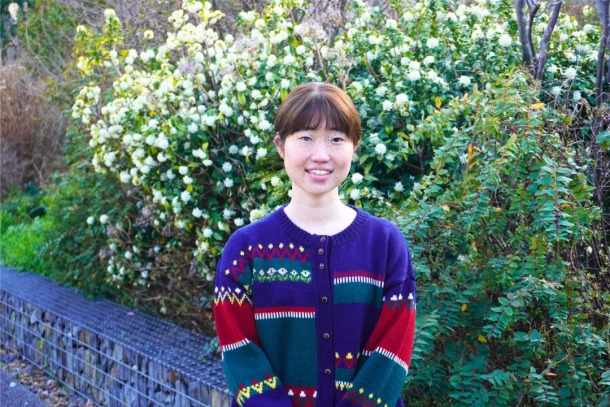
At Toyama Campus Toyama Hill
Ayane Kabeya is the founder and representative of Earlink, a community that provides support for deaf and hard-of-hearing students and their families. Using her own experience of being deaf from birth, she is committed to activities that support students in the same situation and their families. We spoke to Kabeya about Earlink's activities, the thoughts that underpin them, and future prospects.
--What kind of organization is Earlink?
This is an organization I started in the winter of my second year of university with the aim of supporting students with hearing impairments and their families who attend schools for hearing students (people who are not hearing impaired). The nine managing members are all students and working adults who, like me, have attended schools for hearing people from elementary school to university, and we met mainly through social media. We usually use a communication app called Discord to listen to the concerns of the students and their families and exchange information with each other. We also hold events such as lectures and talk sessions.
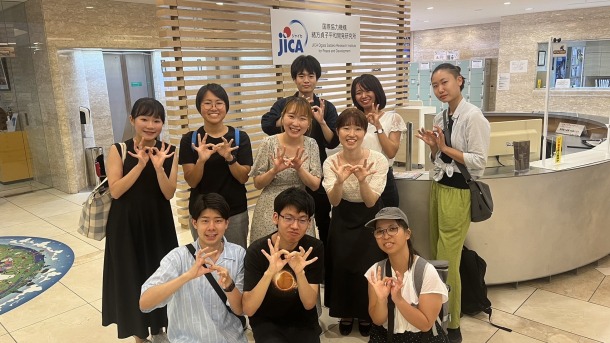
A group photo of Earlink management members and event staff taken at the first in-person event (August 2024). Kabeya is on the far right in the second row.
--What prompted you to start Earlink?
I had been attending a school for hearing people since elementary school, so I wanted to make use of that experience. In the fall of my second year of college, a friend from college invited me to a program offered by CroMen, a career education company, to verbalize my MVV (mission, values, and vision). There, I realized that my mission was to "enable hearing-impaired people to challenge themselves and realize their dreams, whenever and wherever they want." In order to achieve my mission, I thought that the first thing I could do using my experience was to support juniors in the same situation as me, and to support families who are worried about raising their children, so I started Earlink.
-What has impressed you about Earlink's activities so far?
There was an in-person event held in August 2024, where the management members gave talks about their experiences. I gave a talk on the theme of "Self-affirmation of disabilities and the environment surrounding them." At the time, it had only been six months since the organization was established, and we didn't know how many people would participate, but we decided to do it and booked the venue. The NGO Nogezaka Glocal cooperated with us at that time. In the summer of my second year of university, my essay won a special prize at the 4th SDGs "No one left behind" Essay and Creative Contest held by the same organization, and I had the opportunity to talk to the representative at the award ceremony. When I consulted them about Earlink later, they secured a venue for the event. Other organizations also supported us, and we ended up with more than 60 participants.
After the event, we received warm feedback from the participants, and we felt a sense of accomplishment. In particular, we were very happy to hear from a family member of a child who said, "It was a valuable and helpful opportunity to hear directly from those with experiences similar to our children, rather than just from teachers at the school for the deaf or medical professionals."
Earlink's first face-to-face event. (Left) Kabeya's opening remarks, (right) speeches by management members
-Have you ever had any difficulties with your activities?
It was difficult to decide on Earlink's management policy. Although the management members all have the same hearing impairment, they grew up in different environments and have different ways of thinking. Also, since not all of the members knew each other beforehand, there were many times when people found it difficult to speak up when they were asked to give their opinions. As the representative, it was difficult to think of how to draw out as many opinions as possible.
At first, we exchanged opinions through group chat, but we felt it was hard to convey our ideas through text alone, so we had many discussions on Zoom. We also made an effort to share with all members our thoughts on starting Earlink.
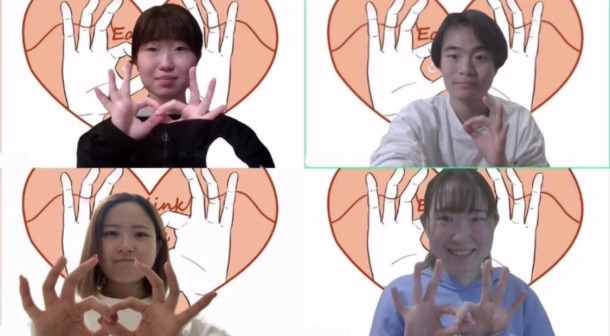
At an online meeting with management members. Kabeya is in the top left. The pose of her hands means "to connect" in sign language, and is also used in the Earlink logo.
--Please tell us why you decided to study at Waseda University's School of Advanced Science and Engineering and what your university life is like.
Growing up in an environment where "everyone else could hear, but I had difficulty hearing," I had more opportunities to think, "Why am I hearing impaired?" and my questions about my ears and body led me to become interested in life science. I was also inspired by the news about the iPS cell research of Shinya Yamanaka, a medical scientist who won the Nobel Prize in Physiology or Medicine.
I chose Waseda's School of Advanced Science and Engineering because when I saw the admissions pamphlet, I felt that I would be able to receive cutting-edge education in a small class size. As someone with a hearing impairment, I thought it would be easier to conduct experiments in a small class size, and that this would be the environment that suited me.
Another reason I wanted to apply was because I wanted to join the Waseda University Sign Language Circle (official student club). Before I started elementary school, I mainly used sign language to communicate, but when I was four years old, I had cochlear implant surgery and was able to communicate verbally. I started attending a school for hearing people in elementary school, and had almost no opportunities to use sign language, but I wanted to take another look at what sign language means to me.
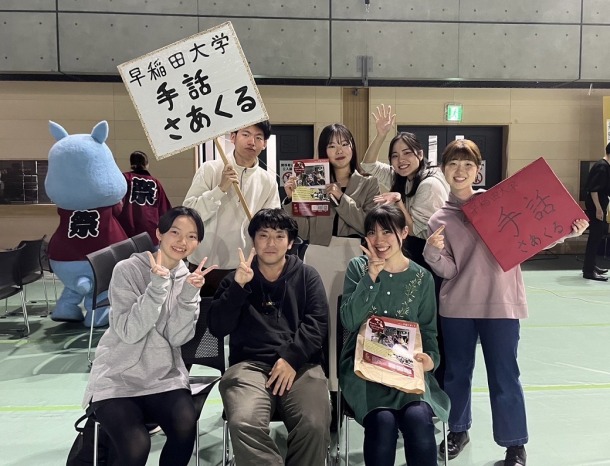
The welcome party for Waseda University's Sign Language Class (April 2024). Kabeya is on the far right in the back row.
At university, I am studying a field that combines medicine and science and engineering. In addition to the large number of classes and assignments, I also have a part-time job. Furthermore, I like to be proactive and often participate in various events and volunteer work, so I have developed the ability to make plans and prioritize work even in a busy environment. My parents sometimes tell me that I am creating problems for myself" (laughs).
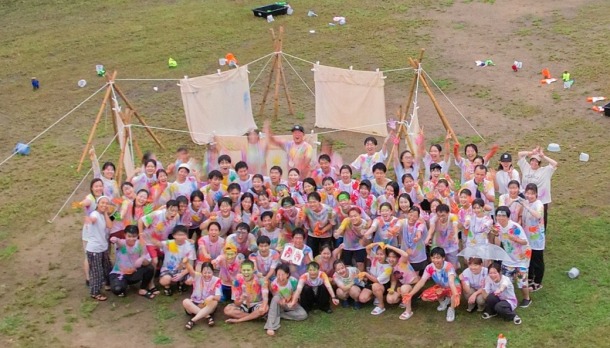
Kabeya is also an active participant in events outside of Earlink and student club. This photo was taken at a campfire event held at an abandoned school in Tochigi Prefecture.
--Please tell us about your future prospects.
We want to expand the scale of Earlink's events. All the members of the management team are busy, so there is a limit to what we can do, but we have many ideas, such as events for parents only and collaborations with other organizations, so we would like to plan and execute them in the future.
After graduating from university, I am thinking of going on to graduate school. Although I haven't yet fully imagined what I will do after graduating, I believe that my mission of "enabling people with hearing impairments to take on the challenges they want to do and realize their dreams, whenever and wherever they are" will remain unchanged.
No.897
Interview, text and photography: Waseda Weekly Reporter (SJC student staff)
Suhon Kanai, 2nd year student, School of Law
【Profile】
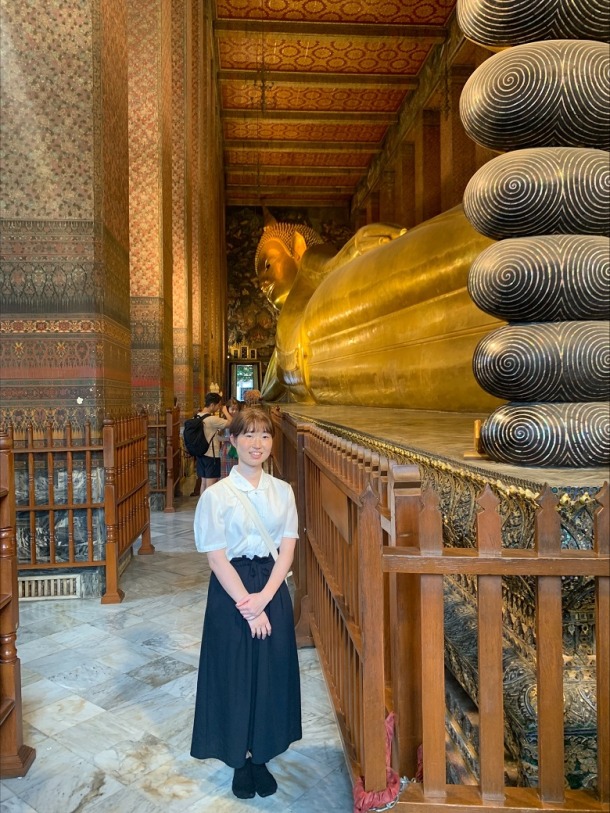
A photo from my visit to Wat Pho in Thailand
Born in Kanagawa Prefecture. Graduated from Kanagawa Prefectural Kawawa High School. Favorite sport is badminton. Loves traveling, and actively enjoys solo travel, such as a four-night, five-day trip to Tohoku using only conventional trains with a Seishun 18 Ticket in hand, and a three-day trip to Thailand.

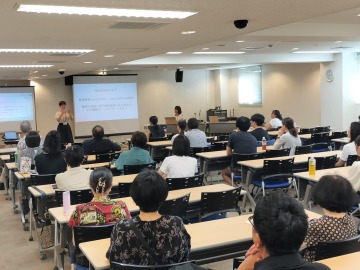
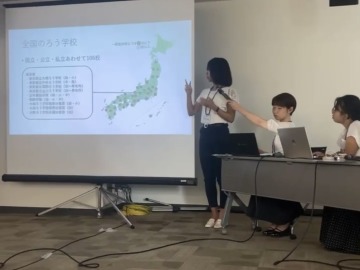
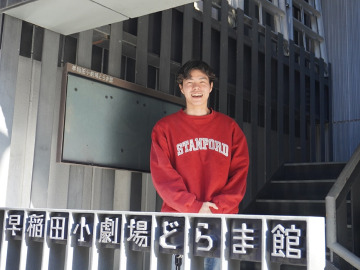
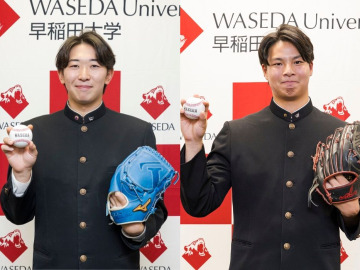
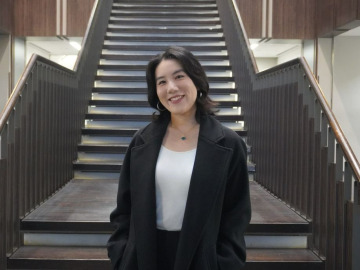
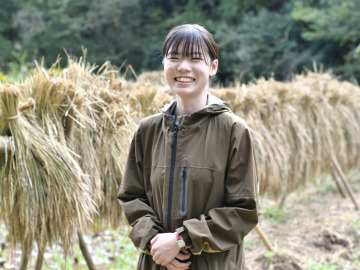

![[Save version] Map of the four main campuses](https://www.waseda.jp/inst/weekly/assets/uploads/2025/09/17cb2975123fc5103172ef60bd98608d-610x458.jpg)

